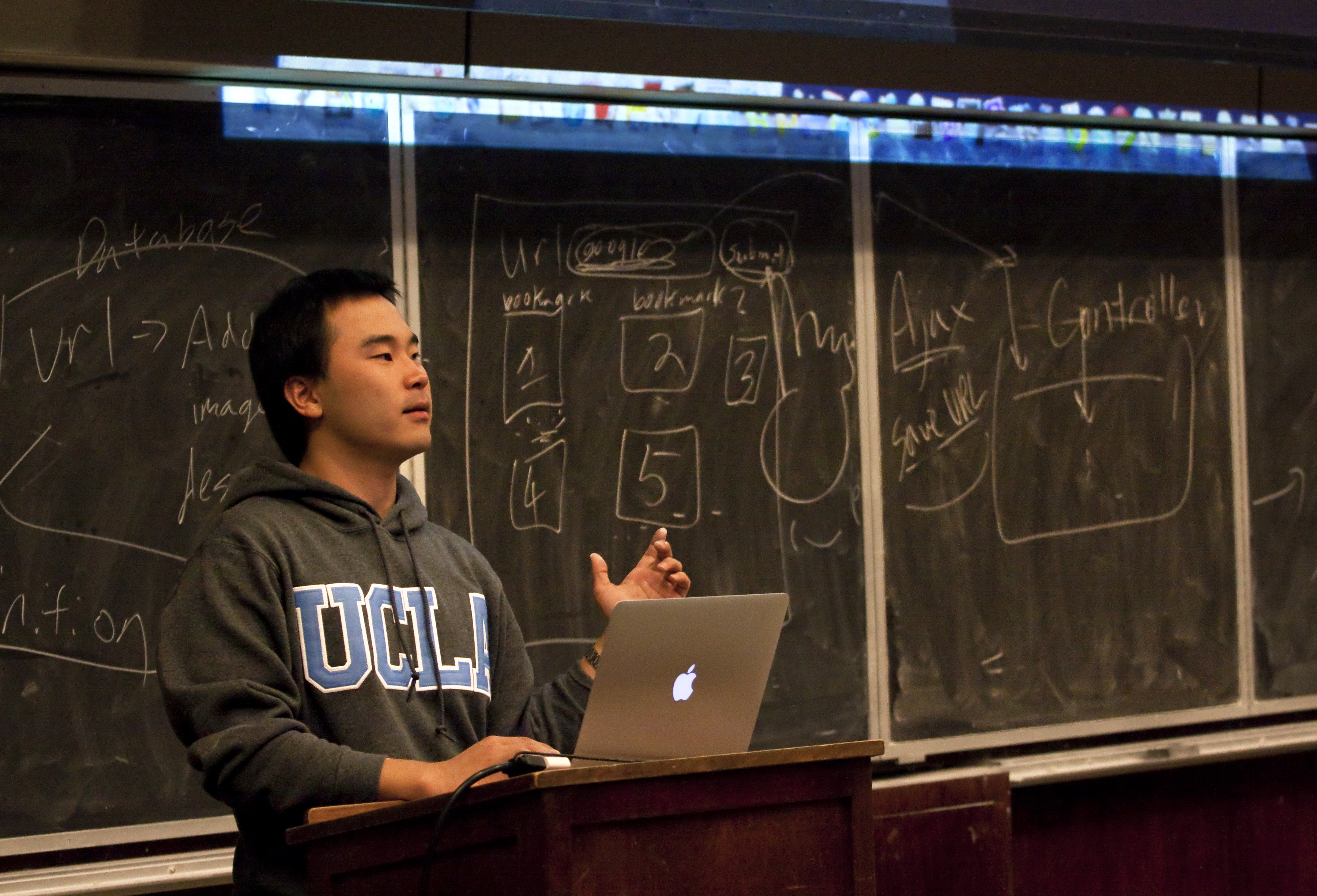Song Zheng adds a new HTML script into his website database.
Then he excitedly points to the projected screen, which now reads “Hello World!” to a small audience of students swiftly copying his codes onto their new websites.
Zheng, a fifth-year computer science student, only started programming two years ago.
But he is now at the front of his own student-run course offered by the Association for Computing Machinery at UCLA.
He first began programming on his own when he realized that what he learned in school wasn’t enough.
“I was really confused when I first started (programming), since there wasn’t a class like this to help get me started,” Zheng said with a smile.
Zheng spent most of his early college years watching online tutorials. He had a tough time learning to program for computers and mobile devices by himself, he said.
But the dedication paid off ““ Zheng has since won several programming competitions, including the SoCal Camp Hackathon, a competition where students have 24 hours to create a Facebook application. After the hackathon, Zheng was offered a summer job at Facebook, where he created applications for Facebook employees.
Now, Zheng is sharing his self-taught knowledge with other students. His biweekly computer science course, which began Oct. 24, draws students from various backgrounds to learn how to build a web application or write codes for websites.
The classes are co-taught by Saurabh Davala, a first-year electrical engineering student, and Kasturi Raghavan, a first-year graduate student in computer science.
The Association for Computing Machinery began offering classes in the spring. The first few courses taught students how to use Ruby on Rails, a framework for building websites, Django ““ another website-building framework ““ and PHP, a scripting language for web development.
Positive responses encouraged the group to continue the classes, said Jiho Kim, president of the association.
The classes are free and open to anyone with an interest in computer science. No background experience is required, Zheng said.
“You only become good at it if you take the initiative,” he said. “If you put it into classroom context where it’s for a grade, it becomes less about if you like it, and more because you have to like it.”
Zheng said he integrates new technologies such as the iPhone into his course plans. He bases his plans on what he thinks will interest students, he said.
First-year computer science student Alex Ramirez said Zheng’s class is easy to follow and relevant to real-life situations.
“This class is a good introduction to computer science for me,” Ramirez said.
“Every business needs a website, so there’s lots of benefits in learning web development tools.”
Fifth-year electrical engineering student Brian Hjelle, meanwhile, said he is taking the class to learn how to create web applications.
Zheng is set to graduate after this quarter and he currently has job interviews lined up with Google, Facebook, Amazon and Microsoft.
He is also at work on two websites ““ a social charity website and a bookmark-sharing site.
Zheng hopes that his class can discredit the belief that computer science is intimidating.
“Some of my friends think computers are scary, but in this day and age, you can’t go anywhere without your computer, so might as well get to know it better,” he said.

#throwback. This was me, 6 years ago!